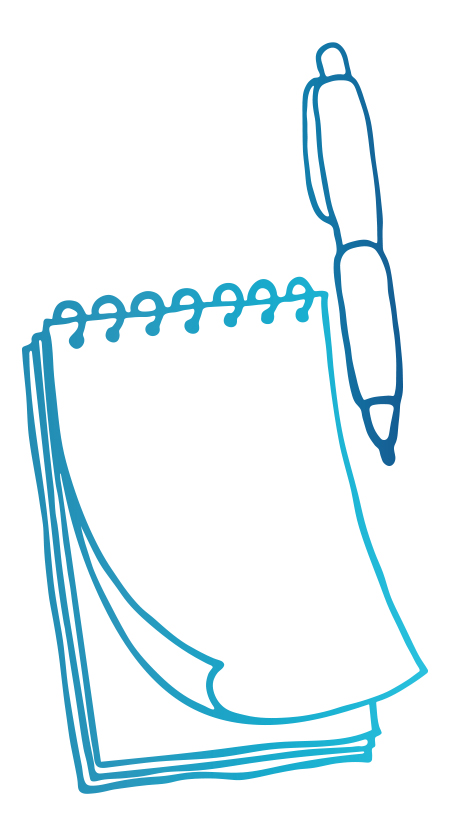Critical Reflection
Adapted from: Incognito: The Secret Lives of the Brain by David Eagleman and www.chabad.org
This article explains one practical method for self-reflection and self-development. There are many methods out there; the essential point is to make self-improvement a formal and regular part of your routine.
When trying to understand the strange details of human behavior, psychologists and economists sometimes appeal to a “dual-process” account. These two processes are always battling it out. The two systems can be loosely labeled as the rational and emotional systems. The rational system cares about analysis of things in the outside world, while the emotional system monitors your internal state and worries about whether things will be bad or good for you.
Each of these systems has equal attributes and capabilities, from creative wisdom to focused concentration, from discipline to loving and generous kindness. The difference is that all the emotional faculties of the rational self are dominated by the mind. The emotional faculties work together in harmony; they complement each other. Wisdom leads to compromise and
cohesion.
The emotional self, due to its self-centered nature, is ruled by its emotions and impulses. Each one of these emotions operates independently of the others; they do not complement each other
to work as a cohesive whole.
This dualistic self is not a pleasant experience. While the rational self strives to grow, improve, and adopt compassion as its norm, the emotional self seeks self-indulgent behavior and pleasurable titillation. This explains why you can “argue” with yourself.
To fight this inner battle successfully, one has to be fully aware of his/her shortcomings. This requires a clear and courageous evaluation of communication and behavior patterns. In the process, one has to subdue and convert the strong pulls and tugs of mundane pleasure and self-seeking.
The purpose of this inner battle is not to conquer and eliminate the lower-self. It is to tame and use it in the service of our higher attributes. It does not mean creating states of non-thinking and non-feeling, or ignoring the needs of the emotional self. Strong emotions are desirable and fulfilling, but the “horse” has to be taught to respond to the directions of its master. Passion is a double-edged sword: it can either hurt and injure the self and others, or become the very drive needed to overcome challenge and create inner unity. When the rational self can lead and focus the emotional self towards its goals, harmony of both selves is achieved. The horse is being led by its master, and enjoys what it does without galloping out of control.
Daily effort in this battle need not be extensive or time consuming. The important factor is daily continuity and reinforcement. Winning small daily battles over a year achieves far more than waging periodic battles, but losing the war.
True courageous reflection will galvanize your willpower. Such reflection promotes continuous self-awareness, empowers you, ensures your actions are in sync with your values, and gives you the self-awareness you need to more quickly achieve your potential.
Some experts suggest the following method to work on your self-development. There are three primary emotions which communicate that something has derailed, also known as your “gut feeling.” Those emotions are surprise, frustration or anger, or failure. By documenting and analyzing the situations where you feel those emotions, you will be able to pinpoint areas of self-development that should be addressed.
- KEEP A JOURNAL.
Whenever you are surprised, frustrated, or fail, note the feeling in a journal. As soon as you are able, jot down what happened in enough detail to recall the instance in as much accuracy as possible. Note the feelings in your body — a sour stomach, a hot head, an impulse to cry — as well as any immediate thoughts that may be racing through your mind. Try to identify the why behind the emotion. What about the event triggered these feelings in you? Were your expectations derailed? Did things not go your way? Did you make a mistake? - SET AN HOUR ASIDE EACH WEEK TO REVIEW YOUR NOTES. Don’t skip it. Block out the time on your calendar in order to avoid other disturbances. You can prepare yourself for this review by setting realistic expectations: It’s going to be rigorous and honest. It may even be painful to examine your shortcomings, but also know you can’t get better until you know what to get better at.
- DON’T JUST RE-READ YOUR JOURNAL ENTRY. Add to it. In retrospect, are there things about the situation that you are able to see differently? Press yourself. What went wrong? Were your initial observations correct or do they reveal something else that may have been going on, something you couldn’t see in the heat of the moment? Try to think of yourself as a neutral observer.
- MAKE DECISIONS FOR THE FUTURE. Now the question becomes: How can I make sure this doesn’t happen again? In the case of failure, you may find there is a mistake you can learn from. In the case of surprise, you may discover that you need to recalibrate unrealistic expectations. In the case of frustration, you may figure out that you need to get better at adapting to the unexpected. From anger, you may learn a mix of all three.
Go easy on yourself. Reflection — well and truly done — is ego-bruising. Always remember that excellence is achieved by stumbling, standing up, dusting yourself off, then stumbling again. If you study those stumbles, you’re much less likely to fall down in the future.

“The final forming of a person’s Character lies in their own hands.”
—ANNE FRANK